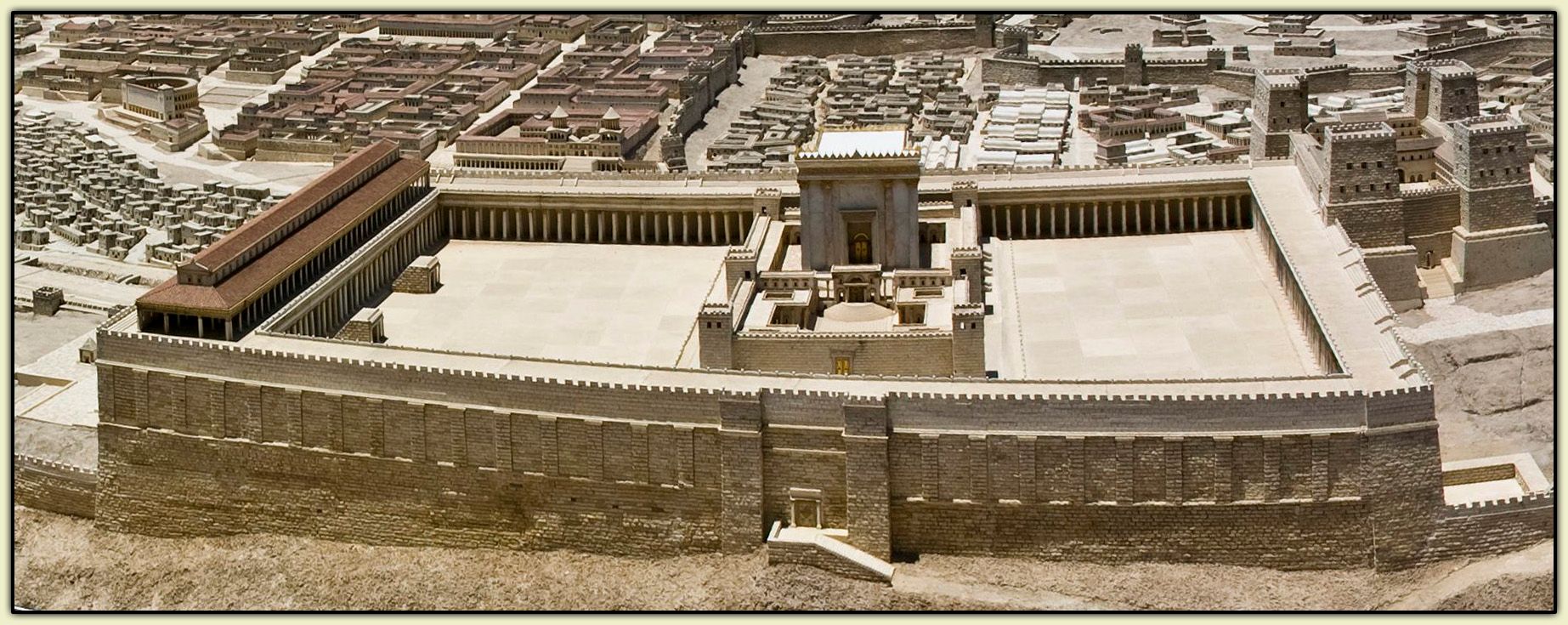
A westward view of the Temple in Jerusalem in the glory days of King Herod... the destruction of which is one of the many calamities Jews mourn on this day. [Click on the image for a full panoramic view of this scale model, which is located at the Israel Museum in a rebuilt Jerusalem.]
Today is Tisha b’Av, the bleakest, blackest day of the Jewish calendar.
Everything rotten that ever happened to us Red Sea Pedestrians happened on (or close to) Tisha b’Av - the ninth day of the month of Av. And even if it took place some other time of the year, this is the day on which we mourn.
The destruction of the First Temple in Jerusalem - the house that Solomon built? Tisha b’Av. The destruction of the Second Temple in the year 70 C.E.? Tisha b’Av. The expulsion of the Jews from Spain in 1492? Tisha b’Av.
Think about that last one for a minute. “Unless you decide to get baptized as a Roman Catholic, you have three months to sell everything you own and get out of the country. And, no, you can’t take any precious metals or jewelry with you. Just leave that stuff here - we’ll find something to do with it.” Nice, huh?
Having just returned from Jerusalem, I now have a far better appreciation of the magnitude of the devastation that the Romans inflicted upon it nearly two thousand years ago when they brought the Glory Days of that great city to a bitter end. What was once unimaginable has now been placed in its physical context, and it is all the more tragic to me.
And yet...
As I have stated before on this very Tabula Electronica, the black cloud of the Roman sack of Jerusalem and the concomitant destruction of the Beit HaMikdash - the Temple that was the focus of the paleojudaic sacrificial cult - had a silver lining. Without a Temple, Judaism no longer had a geographic center: There was no longer any place to which pilgrims could bring their sacrifices thrice yearly. The religion was forced by dire necessity to evolve, and evolve it did, developing a new emphasis on spoken prayer and scholarship. The birth of the religion we know as Judaism today had its genesis 1,942 years ago in the dark events of Tisha b’Av.
In my own way, I will mourn. I will take the leather shoes from off my feet and avoid consortium (don’t ask me about fasting). I will sit on the floor and read the Book of Lamentations by candlelight. I will shed a tear as we chant the haunting elegiac poem “Eli Tzion.”
But I won’t be completely miserable, not after having walked the streets of Yerushalayim ha-b’nuya, today’s rebuilt Jerusalem, the real glory days of which (Hashem willing) still lie ahead. And, being me, I may even crack a joke or two.




















1 comment:
How can one read Lamentations and not cry?
I would like to hug Jeremiah and tell him, "It's over! It's over!"
But it's never over! Not yet, alas!
Post a Comment